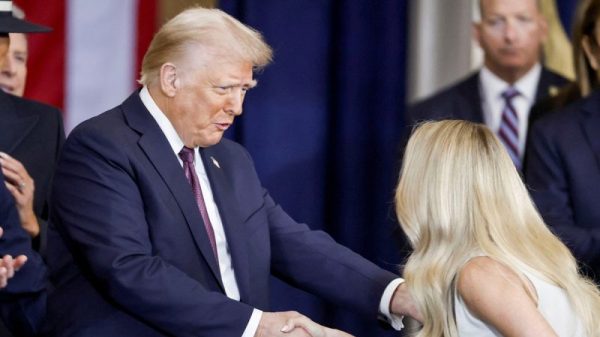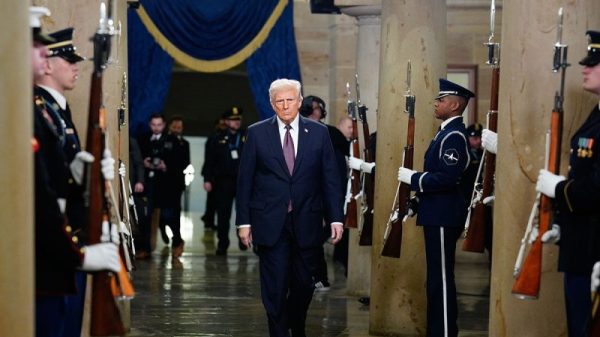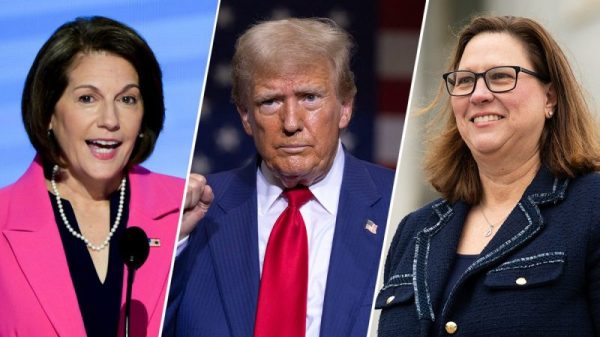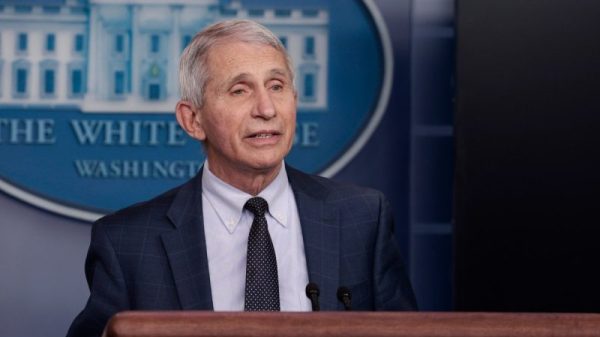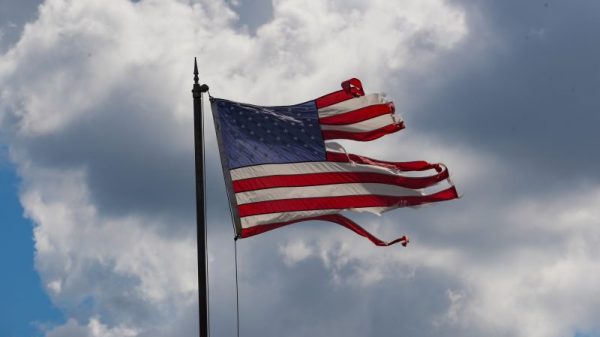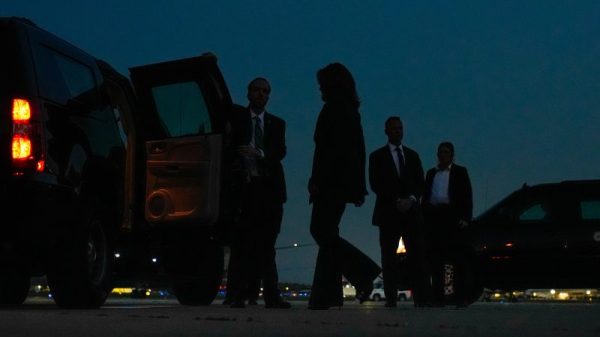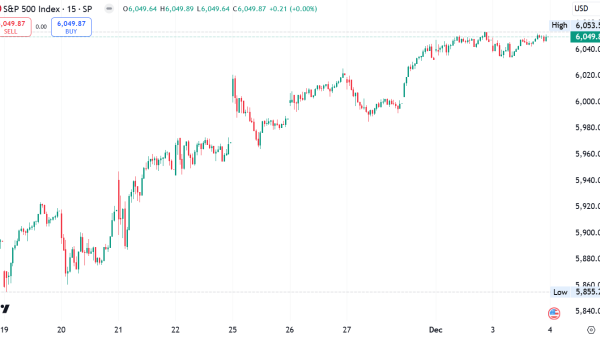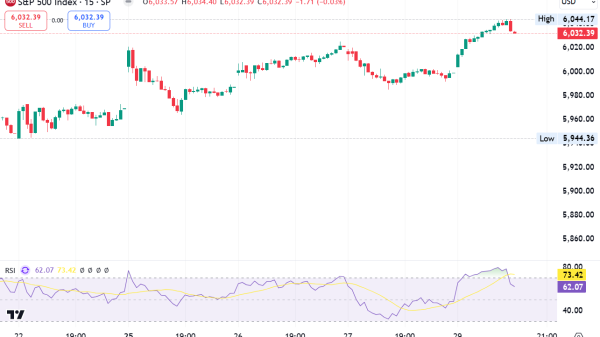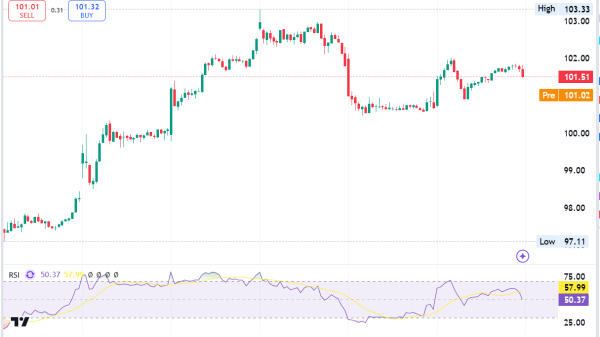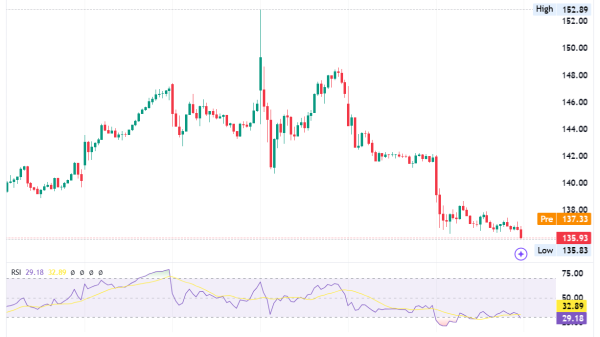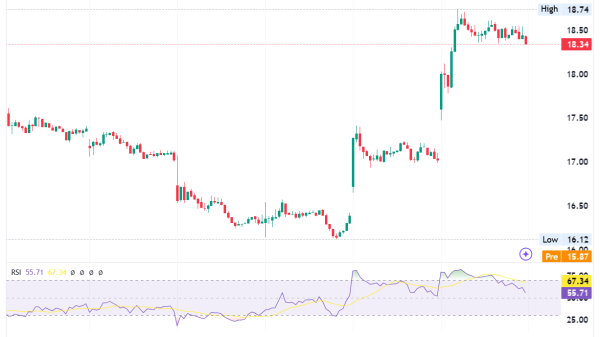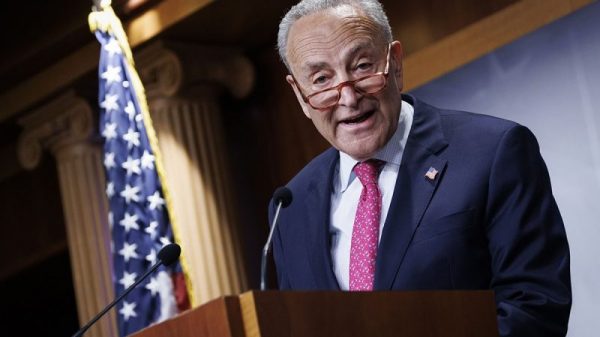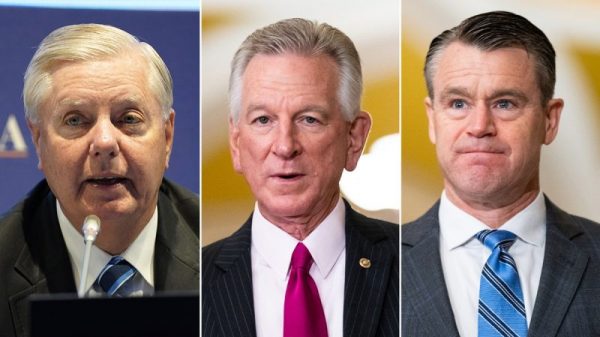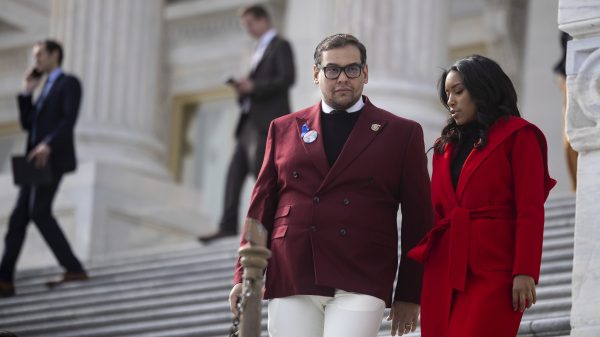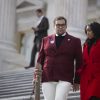The 2024 election is less than three weeks away. But who wins isn’t the only major question; so too is what happens afterward. And more specifically, it’s whether a large chunk of the country baselessly rejects the election results (again) and whether a segment of them might take to drastic measures (again).
The bad news on that front: Despite the utter lack of evidence — nearly four years later — that the 2020 election was stolen, Donald Trump’s supporters actually appear more primed to believe the election will be stolen in 2024 than they were in 2020.
The differences aren’t huge, but the big chunk of Trump supporters who are inclined to distrust the election results looms large as Trump prepares to again reject a potential loss.
A new Economist/YouGov poll shows Trump supporters say by a 2-to-1 margin that they have little or no confidence that the election results will be fair, versus having a “great deal” or “quite a bit” of confidence. While more than 4 in 10 say they have little or no confidence, fewer than a quarter say they have a lot. (The rest say they have “moderate” confidence.)
Just before the 2020 election, it was close to an even split, with only slightly more expressing a lack of confidence.
The numbers were similar in an NPR/PBS News/Marist College poll released earlier this month.
That survey showed 57 percent of Republicans were “very concerned” there would be voter fraud in the 2024 election. That’s compared to just more than 4 in 10 who thought such fraud was “very likely” in early 2020.
These same polls show Democrats have become marginally more confident in the election results, despite already having been far more confident than Republicans.
Other data get at just how prevalent these beliefs are today, including in the swing states.
A recent poll in Pennsylvania showed Republicans said 63 percent to 37 percent that they were “not too confident” or “not at all confident” that the election results would be counted fairly and accurately. A poll in Georgia in September showed a majority of Republicans there lacked confidence (though that was at least down from the same poll in June).
The Marist poll also shows 58 percent of Trump supporters are “very concerned” about noncitizens voting in the 2024 election, and nearly 9 in 10 are at least “concerned” about that.
That gets at the problem here. At least with voter fraud, there are isolated incidents that people can point to (even as there has been no widespread fraud). There is far less proof of noncitizen voting. But Republicans have played up the issue anyway, using misleading claims about noncitizens being on the voter rolls and pushing for legislative fixes.
They say that’s needed to instill confidence in the process, but that confidence is depressed in large part because of Trump’s many ridiculous and debunked claims about voter fraud. And it’s easy to see how playing up a purported problem with so little evidence behind it might actually increase suspicions.
Just because Trump supporters are more primed to worry about voter fraud in 2024 doesn’t mean we’ll see a repeat of 2020; that’s not the only factor here. Other factors include how close the election is in the key states and how much Trump’s allies go along with whatever stolen-election campaign Trump mounts. Republicans could reason that election denialism is a losing issue for them after a third straight disappointing election.
Conservative media outlets and others who echoed and credulously promoted the claims of voter fraud could be given pause by the lawsuits that resulted from their handling of the 2020 election; Fox News settled with Dominion Voting Systems for $787.5 million, and some of the most prominent election deniers, such as Rudy Giuliani, have faced their own legal reckonings. Those who might consider drastic measures might also worry about their fate matching that of the hundreds of Capitol riot defendants who have been convicted of crimes.
But the new numbers are particularly striking because there was some evidence after the 2022 election that this fever was breaking. While some Republicans, such as Arizona gubernatorial candidate Kari Lake, made similar claims about their races being stolen, few others did. And polls showed Republicans by and large didn’t reject or question the results nearly as much as they had in 2020 — even as the election was another disappointment for their party.
Of course, now Trump is running again and stoking their fears again. And the early evidence is that’s a toxic mixture for democracy and the country — again.


